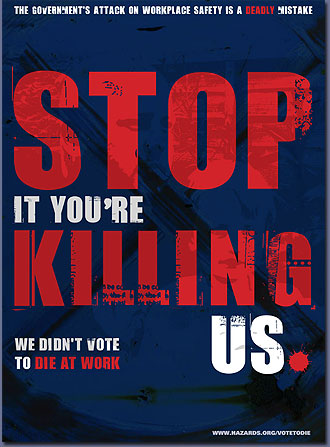Health And Safety Cost Recovery Scheme To Start In October 2012
The Health and Safety Executive (HSE) has today confirmed that its cost recovery scheme, Fee for Intervention (FFI), will start on 1 October 2012 subject to Parliamentary approval of the proposed Health and Safety (Fees) Regulations 2012. These Regulations will put a duty on HSE to recover its costs for carrying out its regulatory functions from those found to be in material breach of health and safety law.
New, detailed guidance has been published on HSE's website setting out how the scheme will work in practice. Developed in consultation with representatives from industry, it explains how FFI works and includes examples illustrating how it would be applied. The main issue is one of whether or not there has been a 'material breach' of the regulations.
 A material breach is, when in the opinion of the HSE inspector, there has been a contravention of health and safety law that is serious enough to require them to notify the person in material breach of that opinion in writing.
A material breach is, when in the opinion of the HSE inspector, there has been a contravention of health and safety law that is serious enough to require them to notify the person in material breach of that opinion in writing.
HSE and the government believe it is right that businesses and organisations that break health and safety laws should pay for HSE’s time in putting matters right, investigating and taking enforcement action. Without FFI, this is paid for from the public purse.
The proposed Fee for Intervention hourly rate for 2012/13 is £124.
FFI will also encourage businesses and organisations to comply in the first place or put matters right quickly when they don't. It will also discourage those who undercut their competitors by not complying with the law and putting people at risk.
FFI recovers costs from those who break health and safety laws for the time and effort HSE spends helping to put matters right such as, investigating and taking enforcement action.
Gordon MacDonald, HSE's programme director, said:
"Confirming the date for the start of Fee For Intervention and publishing the guidance will give dutyholders clarity and certainty about the start of the scheme and what they can expect. We have worked with industry representatives in shaping the final form of the scheme and the published guidance explains how the scheme will work and what businesses can do to comply with the law and avoid incurring a fee.
It is right that those who break the law should pay their fair share of the costs to put things right - and not the public purse. Firms who manage workplace risks properly will not pay."
However, when you consider the slashing of pro-active inspections by the HSE, together with the forthcoming slashes in H&S law; it is clear that the 'wait and see if death or injury occurs, before taking action' american way of applying health and safety law, will mean profit is made from the deaths and injuries of workers by the Government and the HSE. Such a view can be well understood when you realise that there will be no pro-active death and injury avoidance by any authority in the country, except that of what Trade union safety reps are capable of delivering, circumvented as it often is by a hostile management regime within most businesses in which they must operate.
The HSE Board recommended the introduction of FFI to ministers in December 2011. HSE has completed a successful test run of the scheme in preparation for its start in October.
Source: HSE